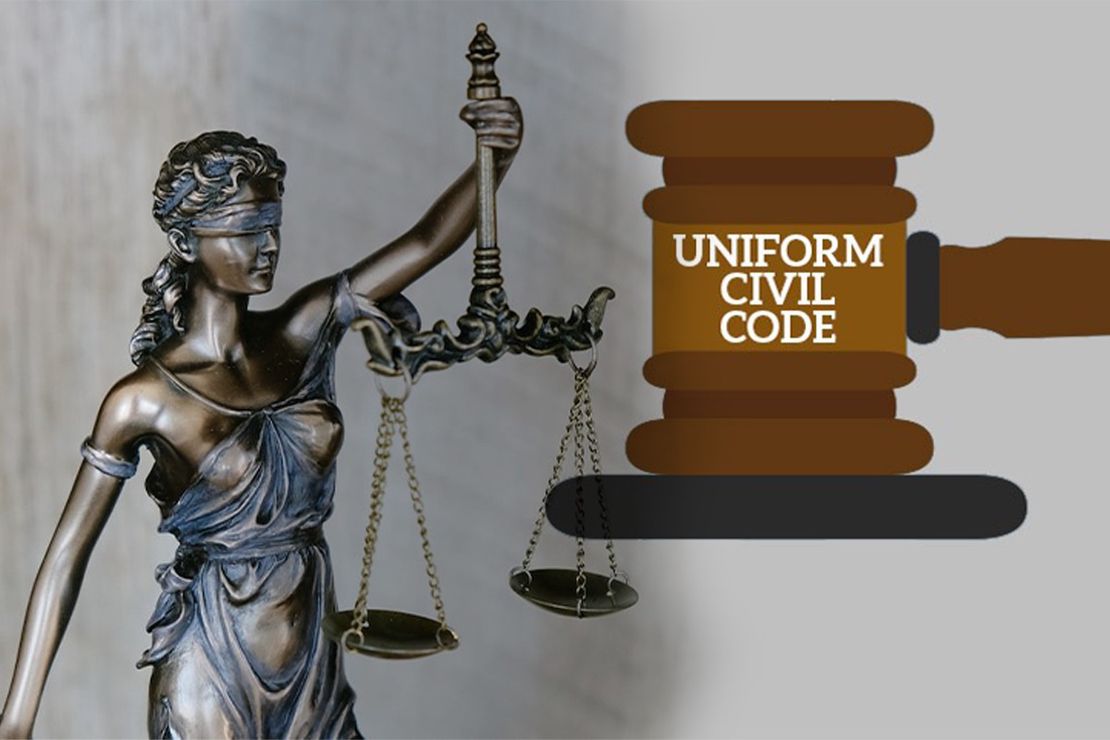
Understanding Uniform Civil Code
- Mayank Upadhyay
- Legal
- June 25, 2025
Table of Contents
Understanding Uniform Civil Code
(Author: Mr. Mayank Upadhyay, IV year law student from Delhi Metropolitan Education, Noida)
सर्वे भवन्तु सुखिनः सर्वे सन्तु निरामया।
सर्वे भद्राणि पश्यन्तु मा कश्चित् दुःखभाग् भवेत्।।
(May all be happy, may all be free from illness, may all see what is auspicious, and may no one suffer.)
This shloka reflects the core moral spirit behind UCC i.e. universal well being without discrimination.
Introduction
In recent years, the debate over Uniform Civil Code (UCC) has gained fresh momentum in India. While the Constitution of India envisions the UCC under Article 44, its implementation has remained a contentious issue, with strong arguments in both favour or against. But what exactly this Uniform Civil Code is and why is it becoming a hot topic of debate?
What is Uniform Civil Code?
All Indian people, regardless of their caste, religion, or tribe, are subject to the same set of rules known as the Uniform Civil Code, which regulates personal affairs including marriage, divorce, inheritance, adoption, and maintenance. The Hindu Marriage Act, the Muslim Personal Law (Shariat), the Christian Marriage Act, and other laws that are specific to a particular faith currently regulate these private affairs.
The idea behind the UCC is to replace these fragmented laws with one unified code that ensures equality, justice and national integration.
Constitutional Basis of Uniform Civil Code
Article 44 of Indian Constitution states: “The State shall endeavour to secure for the citizens a Uniform Civil Code throughout the territory of India.”
It is a part of Directive Principle of State Policy not enforceable but meant to guide the governance of the country towards certain ideals.
Why is the UCC important?
Promotes Equality: Every citizen is treated equally under a unified legislation. It eliminates gender-based discrimination against women in personal legislation, particularly in areas such as inheritance and divorce.
Strengthens National Integration: By providing one set of civil laws for all, it fosters a sense of unity among diverse communities.
Upholds Secularism: India is a secular state, and laws should not be influenced by religious doctrine.
Simplifies Legal Doctrine: Multiple personal laws cause misunderstandings and inconsistencies. A UCC would guarantee consistency in rulings and expedite the judicial process.
Challenges and Criticisms
Cultural Sensitivity: India has a rich religious heritage and is a varied nation. Many people think that enforcing a single code could violate their religious and cultural identities.
Fear of Majoritarianism: Minority populations frequently worry that the UCC is a covert attempt to force their habits to match those of the majority.
Absence of Political Consensus: Because of its delicate nature, successive administrations have been reluctant to carry out this constitutional purpose.
Practical Challenges: It is a challenging undertaking to draft a code that is equitable and acceptable to all religious and cultural groups.
Recent Development
On 27 January 2025, Uttarakhand became the first state of India to implement the UCC by passing Uttarakhand Uniform Civil Code Bill 2024.
Goa was the first state that practiced a common civil code via The Portuguese Civil Code of 1867.
Also, Assam and Gujarat are the other two states who are working on the implementation of Uniform Civil Code.
Conclusion
One of the most intricate and sensitive topics in Indian politics and culture is still the Uniform Civil Code. Its road is fraught with issues of identity, religion, and constitutional principles, despite its promises of equality and modernity. The secret is to take a progressive, comprehensive approach to law reform while striking a balance between individual rights and cultural liberties.
एकता सदा राष्ट्रस्य, नैव भेदः संप्रदायतः॥”
(Let the law be equal for all, Let justice have the same vision for all.
Unity must always define the nation, Not division through faith or tradition.)